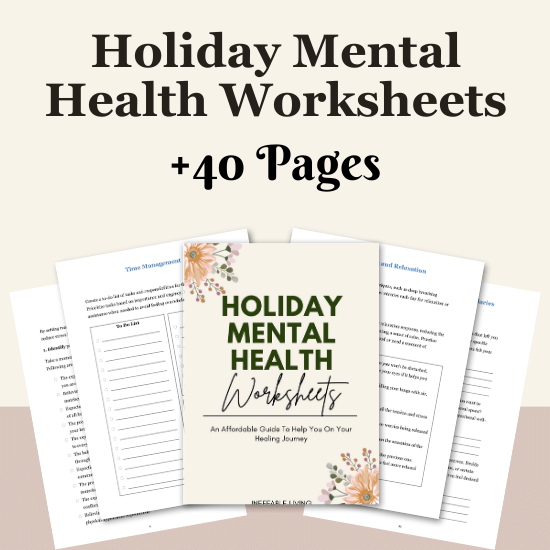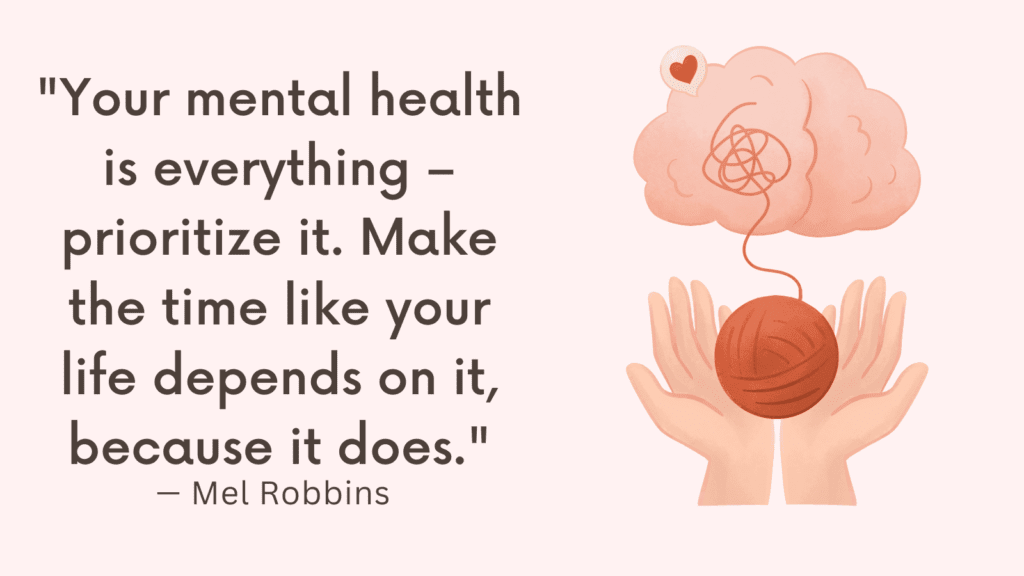The holiday season can amplify feelings of loss, loneliness, or sadness for those who are estranged from family.
Here are some compassionate ways to navigate this challenging time and find support, comfort, and joy in the season.
Why the Holidays Often Intensify Feelings of Estrangement
The holiday season, often portrayed as a time of family unity and togetherness, can sharply magnify the pain of estrangement. Whether you’re cut off from family by choice or circumstance, the contrast between cultural expectations and personal reality can stir up powerful emotions.
1. Cultural Messages of Family Togetherness
Movies, ads, and social media flood us with idealized images of happy families, making those without such connections feel even more isolated or “othered.”
2. Rekindled Memories of the Past
Holidays often carry emotional weight from childhood or past experiences, bringing up old wounds, unresolved conflicts, or bittersweet memories.
3. Pressure to Reconnect or “Fix” Things
Seasonal expectations can trigger guilt or external pressure to reconcile, even when maintaining distance is necessary for your mental health.
4. Social Comparisons and Triggers
Seeing others’ family gatherings online or hearing about them in conversation can stir up sadness, resentment, or a sense of missing out.
5. Desire for Belonging
Even if you’ve built a chosen family or enjoy solitude, the holidays can reawaken a longing for belonging, tradition, and connection that feels hard to satisfy.
How to Cope with Family Estrangement During the Holiday Season?
1. Acknowledge and Validate Your Emotions
Family estrangement can bring a range of emotions, from sadness to anger or even relief. Acknowledging and validating your feelings can help you process them more effectively.
– How to Practice: Give yourself permission to feel whatever arises without judgment. Journaling, speaking to a therapist, or confiding in a trusted friend can provide space to process and accept your emotions.
Related: 7-Step Quick Mental Health Check-In Guide
2. Redefine What Family Means to You
Family is not limited to biological ties; it’s about those who make you feel loved, supported, and accepted. Redefining family can bring comfort and remind you that you’re not alone.
– How to Practice: Reflect on the people in your life who offer support, friendship, or mentorship. You may consider close friends, chosen family, or even community groups as part of your support network.
3. Create New Holiday Traditions
Estrangement may mean the loss of certain traditions, but it also allows you to create new ones that resonate with your current values and lifestyle. New traditions can bring a sense of renewal and joy to the holiday season.
– Ideas: Consider simple yet meaningful traditions, like hosting a “Friendsgiving,” making a favorite meal, decorating your space, or engaging in a hobby you enjoy. Building these traditions over time can make the holidays feel more fulfilling.
Related: 14 Items to Build Your Ultimate Mental Health Kit
4. Lean on a Support Network
During the holidays, having a support system can provide reassurance and comfort. Surround yourself with people who understand and respect your situation.
– How to Practice: Reach out to friends, support groups, or online communities for connection. Having a friend or mentor to check in with during the season can help ease loneliness and provide a sense of belonging.
5. Engage in Acts of Kindness
Giving back to others is a powerful way to shift focus from feelings of loss and can provide a sense of purpose. Acts of kindness remind you that your presence can positively impact others.
– Ideas: Volunteer with a local organization, support a community project, or perform small acts of kindness like helping a neighbor or sending a holiday card to someone who may need support.
Related: Best 10 Books About Kindness
6. Practice Self-Compassion
Estrangement can lead to feelings of guilt, shame, or inadequacy, especially during the holidays. Practicing self-compassion helps you treat yourself with kindness and understanding.
– How to Practice: Remind yourself that estrangement doesn’t define your worth. Use self-compassion exercises, such as writing a supportive letter to yourself or practicing positive affirmations to foster a sense of acceptance.
Related: Best 18 Self Compassion Journal Prompts (+FREE Worksheets)
7. Take Social Media Breaks
Social media can intensify feelings of loneliness, as holiday posts often portray idealized images of family gatherings. Limiting social media use can help reduce comparisons and ease emotional triggers.
– How to Practice: Set time limits on social media or take breaks when you feel overwhelmed. Use this time to engage in activities that bring you peace, like reading, walking, or enjoying a favorite hobby.
8. Allow Yourself to Grieve
Estrangement can involve a sense of loss, even if it’s the healthiest choice for you. Giving yourself permission to grieve the relationship you hoped to have can help you process your feelings and move forward.
– How to Practice: Write a letter (unsent) to your estranged family members, expressing any unresolved feelings. Alternatively, try a simple ritual, like lighting a candle, to honor your feelings and acknowledge the past.
Related: Grief Comes In Waves: Top 12 Lessons From Grief No One Talks About
9. Seek Professional Support if Needed
Estrangement can be a complex, deeply emotional experience. Speaking with a therapist or counselor can provide a safe space to explore your feelings and gain coping tools for the holiday season.
– How to Practice: Look for a therapist specializing in family dynamics or grief counseling. Many offer virtual appointments, making it easier to access support from the comfort of your home.
10. Focus on What You Can Control
Estrangement can feel disempowering, but you can focus on areas where you have agency, such as creating joyful experiences and caring for your well-being.
– How to Practice: Identify small actions within your control, like decorating your space, treating yourself to a nice meal, or planning enjoyable activities. Emphasizing your autonomy can bring empowerment and help ease feelings of loss.
Related: How to Overcome the Fear of Losing Control?

How to Handle Unsolicited Questions from Friends or Coworkers
When you’re estranged from family, the holidays can bring extra emotional weight — and the last thing you need is to be caught off guard by casual or intrusive questions from friends, coworkers, or acquaintances. Preparing for these moments helps you respond with calm and confidence, protecting your emotional space without having to overexplain or feel exposed.
1. Decide in Advance What You Want to Share
Before holiday conversations come up, reflect on how much of your story you actually want to share. You are under no obligation to explain your family situation or the reasons behind your choices, no matter how curious or well-meaning others may be. Clarifying your comfort level in advance can reduce the anxiety of feeling unprepared.
2. Prepare a Simple, Neutral Response
Have a short, polite answer ready, such as “I’m keeping things low-key this year” or “I’m spending the holidays on my own terms.” This keeps the interaction light and helps you avoid being pulled into territory you don’t want to discuss. Rehearsing your words ahead of time can also help you deliver them with more ease and confidence when the moment arises.
3. Use Redirecting Responses
If someone continues to press or show curiosity, practice gently steering the conversation away: “Thanks for asking, but I’d love to hear about your plans — what are you up to this year?” Redirecting allows you to move the focus without confrontation, reminding both you and the other person that not every question requires a detailed answer.
4. Set a Clear Boundary if Needed
Sometimes people don’t pick up on subtle hints, and that’s when you may need to say more firmly, “I appreciate your concern, but I’d prefer not to get into family details.” Setting a clear verbal boundary is not rude — it’s a healthy way to protect your privacy. Remember, it’s okay to prioritize your emotional well-being over someone else’s curiosity.
5. Practice Calm Body Language
Even if you feel nervous or irritated inside, keeping a neutral tone, relaxed posture, and steady voice can help signal that you’re not inviting a deeper conversation. Your nonverbal cues are often just as powerful as your words in setting the tone. Practicing in front of a mirror or with a trusted friend beforehand can strengthen your sense of control.
6. Remind Yourself You Don’t Need to Justify Your Situation
You might feel the internal pull to explain, defend, or justify your family story — but remind yourself, you don’t owe anyone an explanation. Estrangement is complex, deeply personal, and often misunderstood. You are allowed to protect the details of your journey without guilt or apology.
7. Have a Grounding Phrase Ready for Yourself
In moments when you feel flustered or triggered, it helps to have a quiet inner reminder like, “I am allowed to protect my peace,” or “Not every question needs an answer.” These grounding phrases help center you in your boundaries and reduce the emotional charge of the interaction, helping you recover more quickly.
8. Lean on Trusted People for Support
After facing an uncomfortable conversation, give yourself permission to reach out to someone you trust — whether it’s a close friend, a support group, or a therapist. Talking about the encounter can help you process any lingering emotions and remind you that you are not alone in navigating these complex social situations.
9. Practice Self-Compassion
Even if you handle the moment well on the outside, you might still feel rattled, sad, or frustrated afterward — and that’s completely normal. Instead of criticizing yourself or replaying the conversation in your head, offer yourself compassion: “That was hard, and I did my best.” Being kind to yourself is a vital part of emotional recovery.
Conclusion
Navigating family estrangement during the holidays is challenging, but by focusing on self-compassion, building new traditions, and leaning on supportive connections, you can find ways to create meaning, joy, and peace this season.
Remember, you’re not alone, and there are many paths to finding comfort and belonging.



